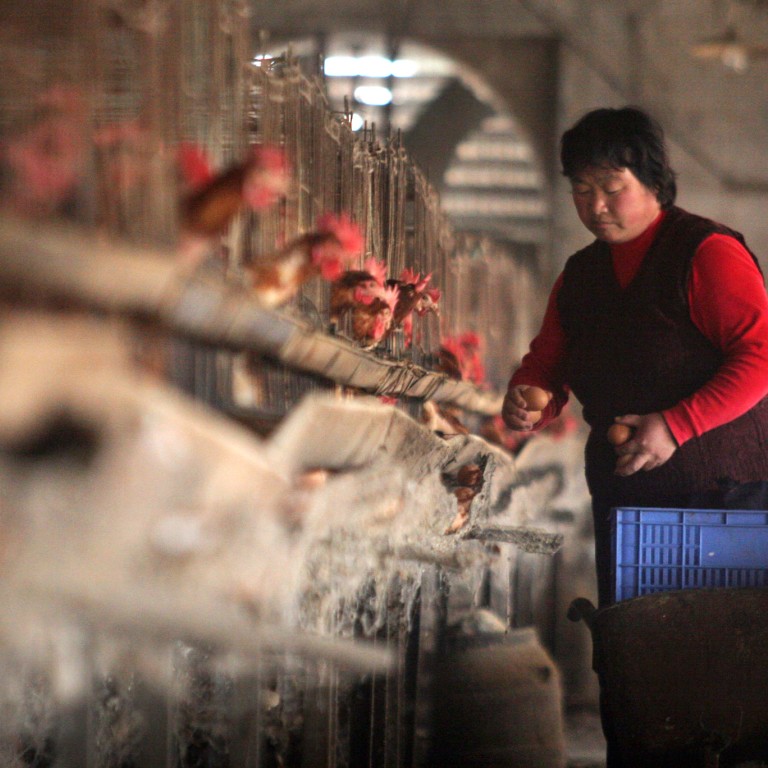
New | China to help poultry farmers hit with 20b yuan losses over bird flu
A recent outbreak of bird flu in China has cost poultry farmers 20 billion yuan (HK$25.4 billion) and the government will implement new policies to support the industry, the reported on Thursday.
The outbreak has affected more than 40 million farmers and triggered a fall in chicken and egg prices, the newspaper said. It quoted Zhang Zhongqiu, a senior official of China’s Ministry of Agriculture, as saying that new policies would be rolled out in due course.
Chinese authorities have confirmed a second human case of the new H10N8 strain of bird flu, contracted by a woman who is in a critical condition in a hospital in the east of the country, state news agency Xinhua reported this week.
The previous bird flu outbreak, which began last March, caused direct economic losses exceeding 60 billion yuan during the first half of last year, the said.
In the worst-hit province of Zhejiang, three members of the same family contracted the H7N9 strain, Xinhua reported late on Tuesday.
Hong Kong on Wednesday reported its third death from H7N9 bird flu – an elderly man who had visited mainland China – a day after authorities culled 22,000 birds to curb the disease.
The 75-year-old man had previously travelled to the neighbouring city of Shenzhen and died Wednesday morning, a government doctor told reporters.
“Today we have confirmed the fourth H7N9 in Hong Kong, this case is likely to be an imported infection,” Doctor Chuang Shuk-kwan of the Centre for Health Protection told reporters.
“He stayed in a residence in the Bao’an district and there are live poultry markets around that area,” she said.
He was admitted to the intensive care unit of Hong Kong’s Tuen Mun hospital on Tuesday afternoon with a high fever. “We obtained some samples from his respiratory tract after he had been admitted to the hospital. After he died, we discovered it was H7N9,” Chuang said.
“Because of the geographic proximity there’s no way we can stop human traffic between mainland and Hong Kong,” Hong Kong health secretary Ko Wing-man said, adding that residents travelling to the mainland should wear masks and wash their hands frequently if they visit wet markets.
Fears over avian flu have grown following the deaths of two men from the H7N9 strain of the virus in Hong Kong since December.
A 65-year-old man died on January 14 and an 80-year old man died on Boxing Day last year. Both had recently returned from the mainland.
Officials wearing masks and protective suits piled dead chickens into black plastic bags Tuesday, at Hong Kong’s Cheung Sha Wan market where the virus was found.
Cheung Sha Wan – Hong Kong’s only wholesale poultry market – is now shut for 21 days for disinfection and the sale of live birds in the city has ground to a halt on the eve of the Lunar New Year holiday season.
Hong Kong health authorities said a total of 254 H7N9 cases have been confirmed on the mainland since the outbreak began there in February last year, sparking fears the virus could mutate to become easily transmissible between people, potentially triggering a pandemic.

